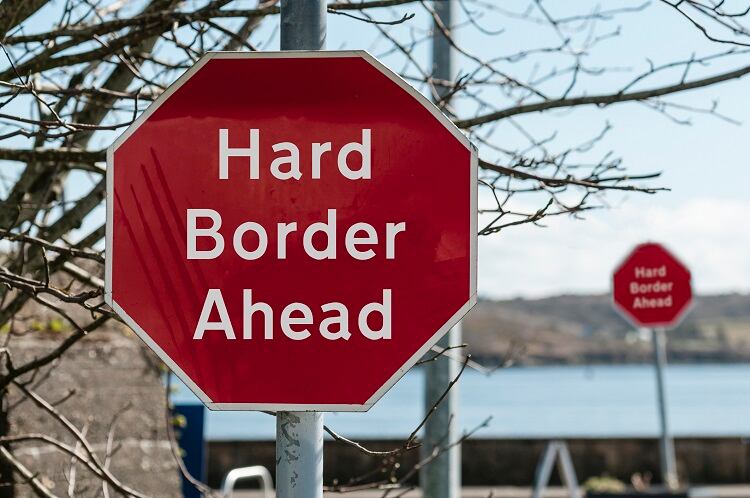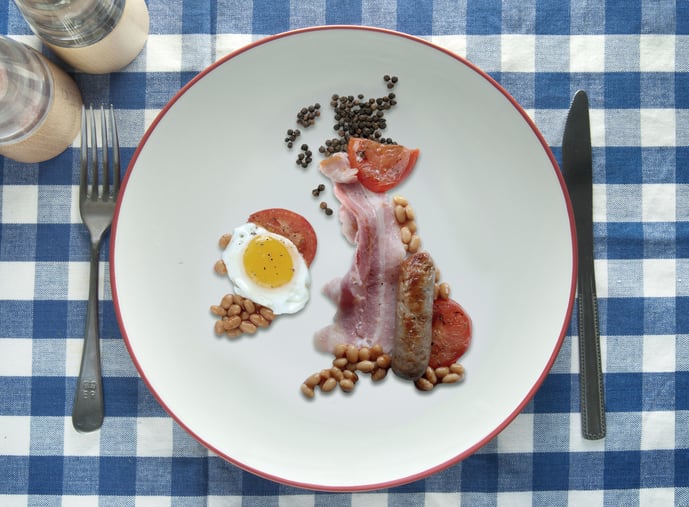Three years on from the Brexit vote, the UK is due to leave from the European Union in two months – on October 31. To date, no Withdrawal Agreement between been ratified.
The UK government is therefore actively preparing for a no-deal scenario, which will have ‘serious consequences’ for its food and agricultural sectors, according to the Food Research Collaboration, Centre for Food Policy at City, University of London.
It its latest report, the researchers say nowhere will the effects of raised prices, restricted supplies of fresh fruit and vegetables, and burdens on food businesses, be felt more sharply than in Northern Ireland (NI) – where cross-border food trade is critical to their diet, livelihoods, and overall health.
“There has been too little attention paid to the impacts a no-deal will have on food flows through the island of Ireland and absolutely zero attention to the impact a no-deal could have on imports of fruit and vegetables into Northern Ireland. These are vitally important. Disruption is a risk to public health and must be avoided,” explained professor Tim Lang of the Centre for Food Policy.
Food trade admin ‘unworkable’
The researchers’ most recent briefing, titled Food, no-deal and the Irish border, raises concern for food businesses trading across the Irish border.
Without a signed Withdrawal Agreement, the ROI would be legally obliged to apply border controls. Food entering the ROI from the UK could be subjected to tariffs, alongside physical and documentary checks.
“The inescapability concerns goods going from NI, which is part of the UK, into the Republic of Ireland (ROI), which will be in Europe. The Irish border will effectively become the EU perimeter fence,” research fellow from the Food Research Collaboration, Dr Rosalind Sharpe, told FoodNavigator.
“It is really difficult to see how Ireland will be able to avoid its legal responsibility to enforce the EU’s perimeter regulations. And that means that nothing will be able to go into ROI from NI without the [required] documentation prepared in advance.”
Cross-border food trade: the numbers
According to the Food Research Collaboration, foodstuffs cross the Irish border ‘very often’, and sometimes multiple times throughout the manufacturing process.
In 2018, food and live animals made up 32% of all goods exported to the Republic of Ireland (ROI) from Northern Ireland (NI), and 40% of all good imported from ROI.
The UK is ROI’s largest single trading partner for agri-foods and processed foods. Ninety-nine percent of mushrooms, 50% of red meat, and 22% of dairy produce crosses the border.
And businesses that manufacture on both sides of the border can cross between the two countries thousands of times per year. Diageo, for example, which is best-known for its Baily’s Irish Cream liqueur, dispatches trucks on 18,000 cross-border trips every year.
To illustrate the issue in practice, the researchers used the example of a fictitious sandwich maker producing five different types of sandwiches with animal-origin ingredients. If trading goods to 20 different outlets daily, the sandwich maker would need to supply 100 Export Health Certification (EHC) – countersigned by an Environmental Health Officer or a vet – every day.
Given the number of forms per unit, the complexity of finding each form, and the administrative time required to process the documents, Sharpe said this system is ‘completely unworkable’. There are not enough public officials, nor enough vets, she continued. “From day one, it is unworkable.”
Some food companies fear they will be out of business within three days. “Either they try to do this [administration] and it’s not possible, or they will have to break the law. It will criminalise them,” warned the research fellow.
“A no-deal Brexit on the Irish border is not just a high level political abstraction. It really will be a logistical nightmare from day one for people on the ground – for people who are not political activists, but people just trying to get on with their businesses, their jobs, and how they live” – Rosalind Sharpe, the Food Research Collaboration, City, University of London
Further, Sharpe fears it will be the “small guys who are going to suffer, again”. This view was confounded by the recent news that German discounter supermarket Lidl has told its suppliers they would incur any EU import tariffs demanded.
“All existing Lidl contracts contain a DDP (‘delivered duty paid’) clause,” said the supermarket in a statement. The DDP refers to the cost of transporting goods, and indicates they are the responsibility of the supplier.
“In an effort to understand the level of preparedness of key UK suppliers we are communicating proactively with them and working together to resolve any potential barriers to supply,” Lidl added.
For Sharpe, this clause represents the “first example of one of the big companies pushing the cost back down to the chain to the suppliers”.
The answer? ‘Averting a no-deal Brexit’
In the briefing, the researchers urged the UK government and all members of parliament to avoid a no-deal Brexit. “We are hoping that a no-deal Brexit will be averted,” confirmed Sharpe. “Because in all sorts of ways it will be a disaster for the food system and Britain.”
Beyond that, parliamentarians have been called on to publish UK planning assumptions on food suppliers in NI after Brexit, and recognise the importance of flows of food into both NI and ROI.
A ‘hardship fund’ should also be made available for low-income households in NI, to help them pay for fresh foodstuffs if prices increase as a result of Brexit, the researchers continued.
“Food has been trivialised throughout this whole debate. [Yet] it will be felt by consumers and businesses…it will have a huge impact,” said Sharpe. “We’d like policymakers and all parliamentarians to take note of the fact that this is not a trivial issue. It needs careful thought.
“There is a lot of expertise in the food system, in the form of trading standards officers, environmental health officers, NGOs, and local authorities. They need to draw [this expertise] together and facilitate this knowledge to make huge change, so that Brexit goes as smoothly as possible.
“A no-deal Brexit will be a disaster.”





